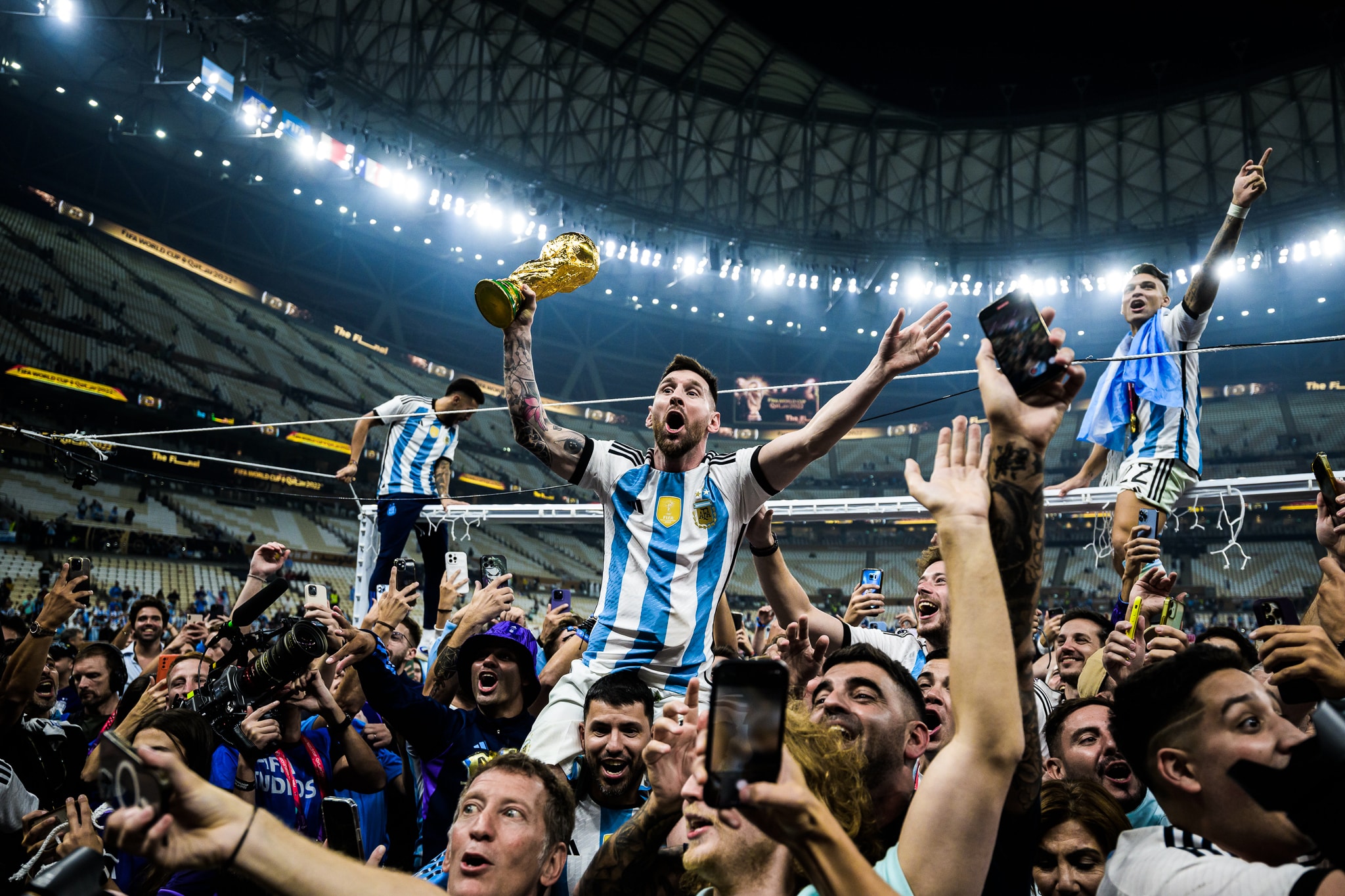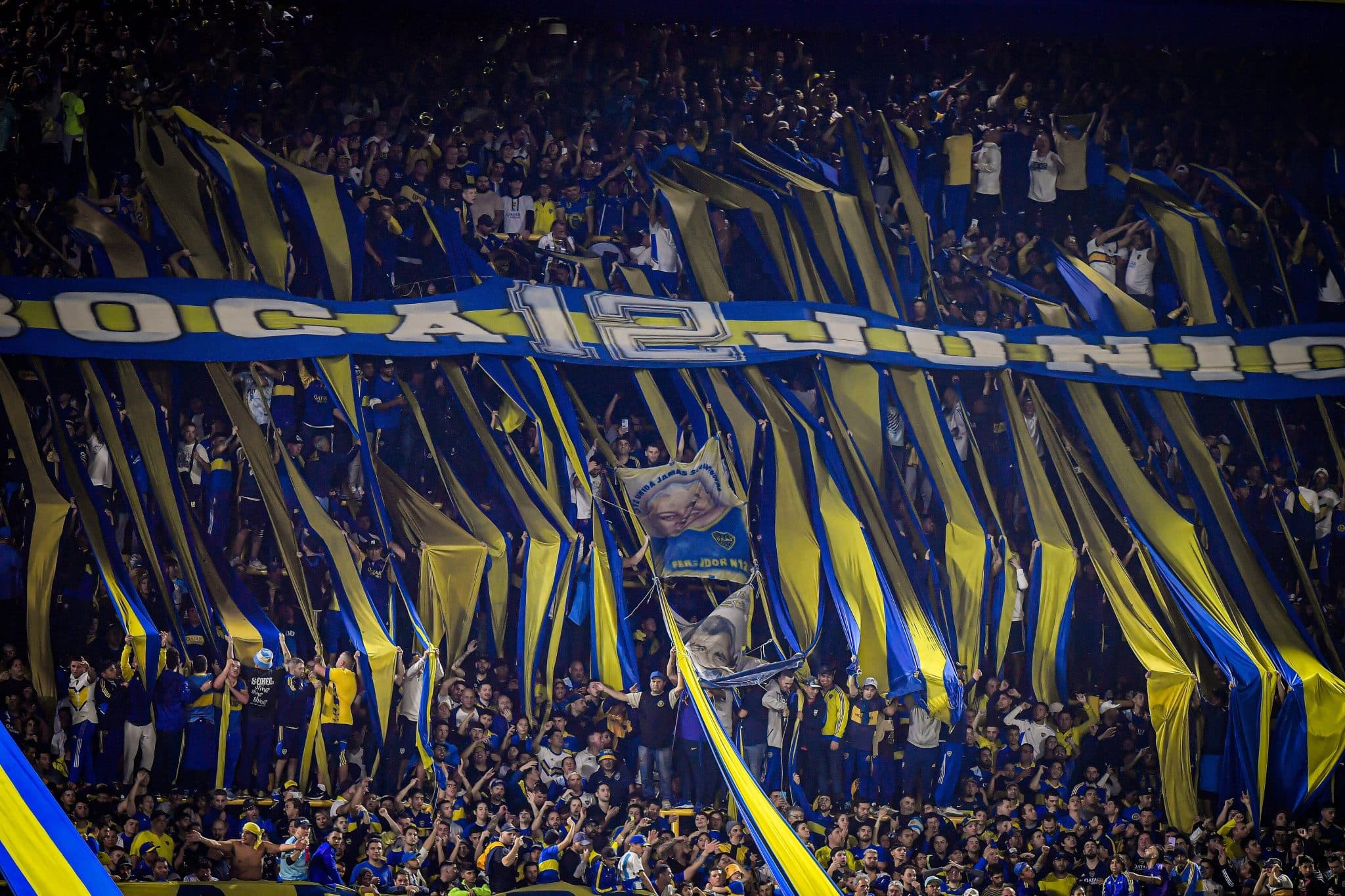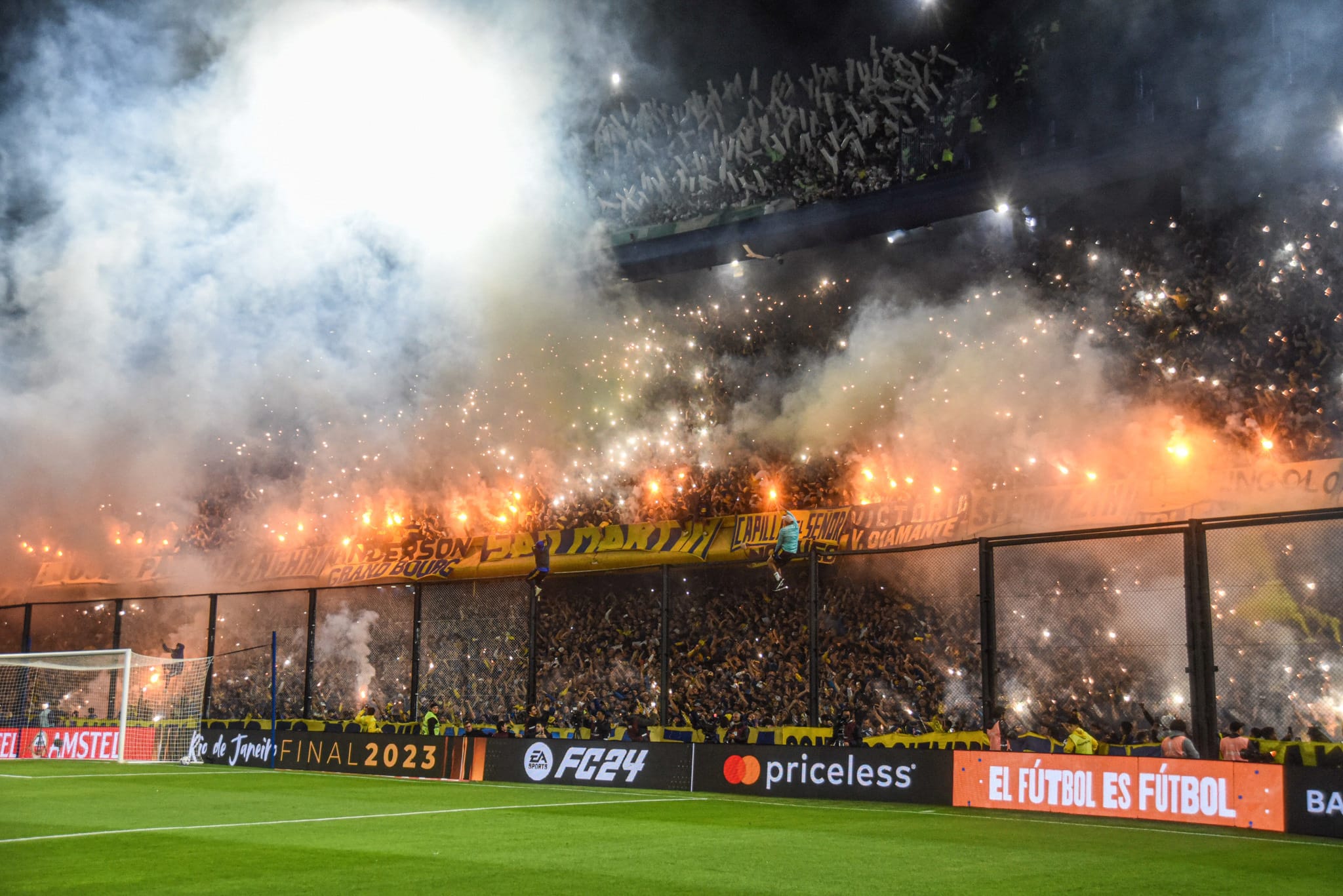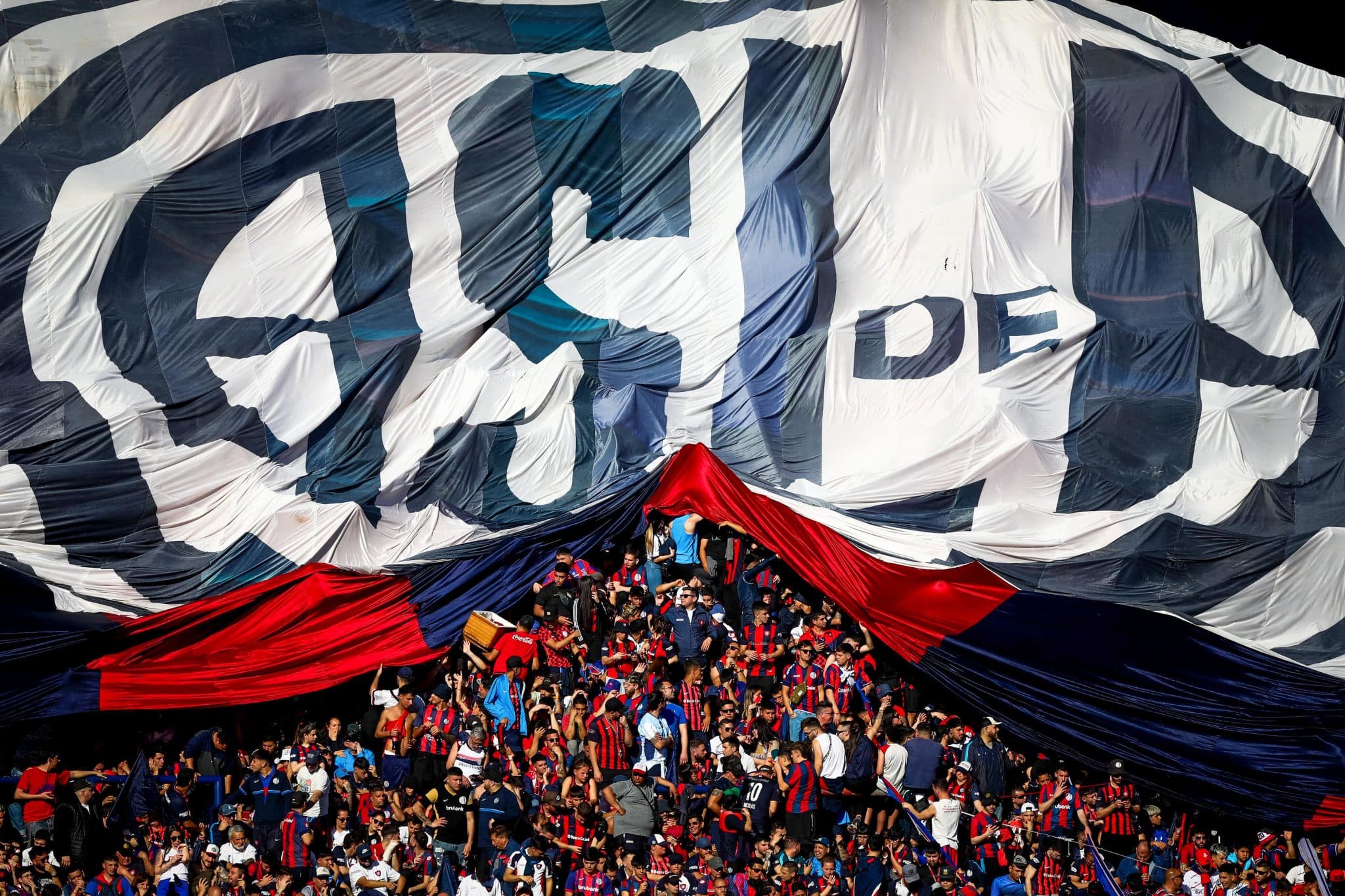In Buenos Aires, football is more than just a sport; it’s a way of life. The city is famous for its passionate fan base and rich football history. Currently, there are at least 20 professional football teams in Buenos Aires, making it a global hotspot for the beautiful game.
Some of the most notable clubs include San Lorenzo, Boca Juniors, River Plate, Huracán, and Vélez Sarsfield. What sets Buenos Aires apart is its intense local football rivalries and the deeply rooted fan cultures that are interwoven into the city's neighbourhoods.
From the famous Superclásico between Boca Juniors and River Plate to the various local derbies that have fueled fan animosity over the years, the high concentration of football clubs in Buenos Aires creates a unique football ecosystem that is unmatched by any other city in the world.
The traditional ‘big five’ of Boca Juniors, River Plate, Independiente, Racing Club and San Lorenzo make up the quintet and will be the focus of this article in further detail.
Map showing football teams in Buenos Aires
The map below shows stadiums of some of the major football clubs in Buenos Aires.
A hotbed of footballing culture
The South American nation lives and breathes football. It is a hotbed of culture and meaning when it comes to the beautiful game, as was depicted in all its glory late in 2022 when a Messi-inspired Argentina side triumphed at the Qatar World Cup. It was the national team’s long-awaited first glory on the greatest stage since 1986 in Mexico when Diego Maradona was the icon.
Maradona was then, and still is today, revered as a hero, an idol, and more. He may have passed away in 2020, but the legend lives on in the psyche of the Argentine nation, just as he does in Napoli, Italy. Maradona and Messi. Icons, idolised and immortal.
A fervent sense of patriotism and a deep-rooted football culture underpin the national love of the game and a strong international team. Those elements lend strength to the Argentine domestic game, which boasts a highly competitive top league and several well-supported clubs of stature and prominence.

The Superclasico: Boca Juniors and River Plate
A clash between River Plate and Boca Juniors is the biggest football rivalry in the city of Buenos Aires. The grand derby is popularly known as Superclasico and often attracts thousands of fans to the hosting stadium.
The clubs share a deep-rooted rivalry which dates back over 100 years and is known to be one of the world's most intense.

To illustrate this, a notable reference is the outstanding Copa 90 documentary that captured the magic and madness of the Superclasico Copa Libertadores final in 2018.
As great and intense as that game is, Buenos Aires and Argentine football have so much more to offer and not just football hooliganism often brought upon the city by Boca Juniors and River Plate fans.
Independiente, Racing, and San Lorenzo make up the rest of the Big Five with a substantial support base, but below them, the fan base is strong in numbers and passionate.
List of Buenos Aires football stadiums
| Club | Stadium | Capacity |
|---|---|---|
| Boca Juniors | La Bombonera | 49,000 |
| River Plate | El Monumental | 84,567 |
| Independiente | Estadio Libertadores de America | 48,069 |
| Racing Club | Estadio Presidente Peron | 50,000 |
| San Lorenzo | Estadio Pedro Bidegain | 39,494 |
| Huracan | Estadio Tomás Adolfo Duco | 48,314 |
| Argentinos Juniors | Estadio Diego Armando Maradona | 25,000 |
| Vélez Sarsfield | José Amalfitani Stadium | 45,540 |
Note: Independiente and Racing Club are two of Argentina's biggest clubs. They are not in Buenos Aires city itself but in the Greater Buenos Aires area.
Football teams in Buenos Aires: The legends
Boca Juniors
The Boca Juniors crowd boast of their widespread support for their club. ‘La Mitad Mas Uno’ (half plus one) states that they are the biggest in Argentina and are backed by a majority of the population.

Their opponents prefer the tag ‘Bosteros’ (filth-dwellers), a derogatory reference to their working-class neighbourhood of La Boca, where the club has been based since its inception in 1905.
Boca’s heroes of the recent past include Martin Palermo, Carlos Tevez, Juan Roman Riquelme, and Maradona. Gabriel Batistuta and Claudio Caniggia both began their careers at La Bombonera.
So when you talk about Boca Juniors, it is not always about the madness in the Super Classico but also a walk down memory lane to pick out a few names of football greats who have at some point in their active careers, awakened the football ‘gods' of Argentina on occasions when it matters the most.
Boca Juniors consistently attract top talent, including international stars from outside Argentina. Edinson Cavani, a Uruguayan football legend, is currently playing his final years in football in Buenos Aires, leading the scoring charts as he did elsewhere.
River Plate
River Plate had humble origins similar to their fierce rivals, but soon moved out to the affluent area of Nunez, from where their Millonarios moniker was born, thanks to the bank balance they enjoyed.
Despite holding the title of Argentina’s most decorated club, River was relegated in 2011, their first-ever relegation, only to bounce back at the first time of asking with the formidable backing of their fans. Some favourites at the Monumental include Alfredo di Stefano, Hernan Crespo and Pablo Aimar. Gonzalo Higuain and Ariel Ortega also wore the famous red sash.
River Plate was founded on 25 May 1901, so it is four years older than arch-rivals Boca Juniors. It plays its home games at Estadio Monumental in Buenos Aires, a stadium that boasts a rich history in shaping Argentina's football as it is known today.
Independiente
Independiente, currently under the leadership of ex-Boca man Carlos Tevez, is enjoying a resurgence at this stage of the season.
The ‘Diablos Rojos’ (Red Devils) have earned their place among the elite of Argentine football thanks to their cup exploits over the years. Fans of the Avellaneda club call themselves the ‘Rey de Copas’ (King of Cups), and they can back it up. They were the first Argentine club to lift the Copa Libertadores in 1964, and with seven victories, they are the most successful club on the continent in that competition.
Sergio Aguero launched his career here before finding fame and fortune in Europe thanks to his efforts on the pitch.
Racing Club
Racing has been in the wilderness for the best part of half a century, with the last significant title recorded in 1967.
They are sworn rivals with Independiente, with their stadiums positioned back to back, in each other's shadow and that of the big two in Buenos Aires. In their favour, the club is still producing talent, which is making a breakthrough at the club and moving on to a bigger stage. Some of their recent favourite sons include Sergio Romero, Diego Milito and Lisandro Lopez.
San Lorenzo

Then there is San Lorenzo, which has the ignominy as the only ‘Big Five' club not to have won the Copa Libertadores, as their city rivals like to remind them.
Continental glory has eluded them, but they are not short of divine inspiration as they can count on Pope Francis, the first pontiff from the Americas, as one of their own. He is said to be a member of the club. Some of their famous faces include Ezequiel Lavezzi, Andrés D'Alessandro, Santiago Solari, and Pablo Zabaleta.
Other football teams in Buenos Aires
Huracán, Argentinos Juniors, and Velez Sarsfield are football teams in Buenos Aires, albeit with slightly smaller support and a lesser history of success. But if you're looking for the most authentic football fan experience in the Argentine capital, attending a game at one of these stadiums will not be a mistake.
Football teams in Buenos Aires: How to get tickets
Given the intensity of football derbies in Buenos Aires and the fact that the city is home to several very good teams, obtaining tickets to any of the matches can be quite challenging. In some cases, you may have to part with a substantial amount to get a match ticket.
The same can be said for River, but to a lesser extent. Tickets can be purchased at the stadium or online for smaller games or midweek matches in the early stages of the Copa Libertadores. The sheer size of El Monumental means there is greater availability than at the smaller La Bombonera.
Except for the major fixtures, there is a lower chance of encountering ticketing issues with other football teams in Buenos Aires. Do your research and make plans, but you will most likely need to collect your tickets on the eve of the game, as they don't usually go on sale until days before the event.
You can also find tickets online through platforms like Football Host and Homefans. These are two trusted e-ticketing platforms that allow fans to watch Boca Juniors and other clubs play both at home and away in the Argentinian professional league.
Argentinian football is different to elsewhere. Embrace it and enjoy it, as well as all of the idiosyncrasies, differences, and madness that make Argentine football what it is. At its heart are the supporters and their authentic passion. Vamos!
Where to stay in Buenos Aires for matchday
Most visitors base themselves in the smarter northern districts of Buenos Aires, particularly Palermo and Recoleta, which offer a wide range of accommodation and remain lively well into the evening.
San Telmo – to the south of the city centre – is another popular option, known for its character and historic feel, although the central business district itself tends to quieten considerably after working hours.
While the city is filled with appealing neighbourhoods away from the usual tourist trail, many of Buenos Aires’ major stadiums are not located in those areas.
San Telmo is very close to La Bombonera, though La Boca is best approached with caution when choosing accommodation.
Belgrano is situated close to El Monumental, and it provides a calmer base with several good hotel options.
For most visitors, staying in a comfortable, well-connected area and travelling to matches by taxi or public transport remains the most practical choice.
